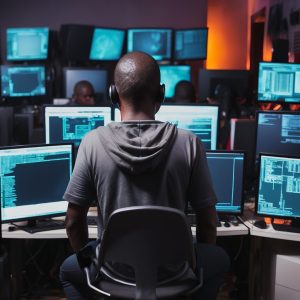The Federal Government has launched the Digitalisation of Public Schools Initiative, a nationwide effort to expand technology-driven learning across Nigeria, beginning with the distribution of interactive smart boards to public schools.
The launch and flag-off ceremony, held on Friday, October 10, 2025, at Queens College, Yaba, Lagos, was led by the Universal Basic Education Commission (UBEC) under the supervision of the Federal Ministry of Education.
Dr. Tunji Alausa, Minister of Education, says the initiative reflects the government’s commitment to integrating digital technology into classrooms to enhance teaching and learning outcomes nationwide.

“This programme is a bold declaration that Nigeria is ready to embrace the future of learning,” Dr. Alausa says, noting that it aligns with President Bola Ahmed Tinubu’s Renewed Hope Agenda, which prioritises innovation, digital literacy, and inclusive access to education.
The Minister explains that the project supports the Ministry’s National Education Sector Renewal Initiative (NESRI), particularly Point 5: Data and Digitalisation, which focuses on strengthening digital infrastructure, data systems, and evidence-based planning for education delivery.
UBEC outlines digitalisation roadmap for classrooms
Hajiya Aisha Garba, UBEC Executive Secretary, highlights key components of the Commission’s digitalisation agenda, describing it as a comprehensive framework to embed technology at all levels of basic education.
These include:
- Distribution of over 60,000 tablets to teachers under the BESDA-AF initiative;
- Establishment of Digital Learning Centres across the country;
- Collaboration with NITDA to develop a National Digital Literacy Curriculum; and
- Creation of a Department for Data and Artificial Intelligence in Education to institutionalise data-driven decision-making.
Hajiya Garba adds that the ongoing distribution of more than 800 interactive smart boards to public schools nationwide will make classrooms more engaging and learner-focused.
“These smart boards will transform classrooms into dynamic learning spaces that make education a journey of discovery,” she says.
Lagos commends digital push
In Lagos, Dr. Hakeem Shittu, Executive Chairman of the Lagos State Universal Basic Education Board (LASUBEB), commends the Federal Government for the initiative, describing it as a reinforcement of the state’s sustained investment in digital education through the EKOEXCEL programme.
He says the project complements Governor Babajide Sanwo-Olu’s THEMES Plus Agenda, particularly the Education and Technology pillar, which seeks to equip pupils with 21st-century skills.
“We are fully aligned with UBEC’s vision and ready to collaborate in deepening digital learning across Lagos public schools,” Dr. Shittu affirms.
Public schools benefit from first rollout phase
Public schools benefiting from the first phase of the Lagos rollout include:
- St. Joseph Primary School, Ibowon-Epe;
- Queens College, Yaba;
- Adeniyi Jones Primary School, Ikeja;
- Victoria Island Primary School, Eti-Osa;
- Anglican Primary School, Ishawo; and
- All Saints Anglican Primary School, Yaba.
Bridging the digital divide in education
The Digitalisation of Public Schools Initiative marks a significant step in the Federal Government’s drive to bridge Nigeria’s digital divide in education and ensure equitable access to modern learning tools for pupils in public schools.
By embedding technology into classrooms, officials say, the government aims to build a generation of digitally literate learners capable of thriving in an innovation-driven economy.
Source of Article

